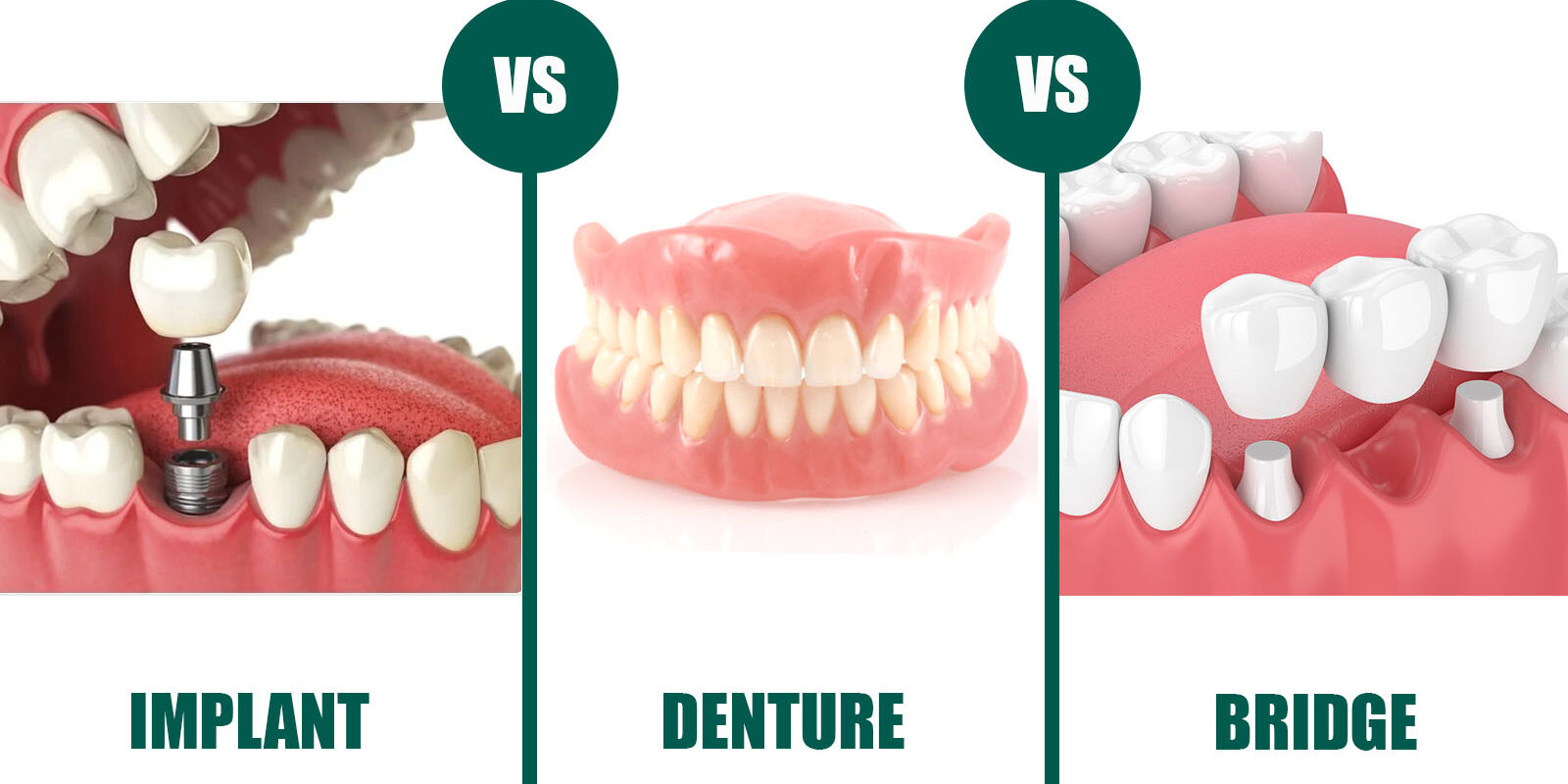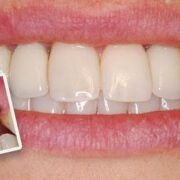Dental implants, bridges, and dentures are all methods of replacing missing teeth. Each solution has its own benefits and drawbacks. Understanding the pros and cons of each treatment can help you decide which one is best for your situation. There are many helpful resources if you’re exploring your dental implant options. The article explains what dental implants are and how they can help you regain your smile. This article covers common reasons people get dental implants, as well as risks, costs, and other factors to consider before surgery. This blog post covers the differences between dental implants, bridges, and dentures:
Dental Implants
Implants are artificial roots that are surgically placed into the upper or lower jawbone. Once healed, they’re used as anchors for replacement teeth. Dental implants can help you regain your smile by replacing one tooth or a full set of teeth. They’re one of the best long-term solutions for missing teeth. They can withstand significant force and can last decades with proper care. Dental implants are suitable for most oral health conditions. However, they may not be suitable for people with uncontrolled gum disease and certain medical conditions, such as diabetes.
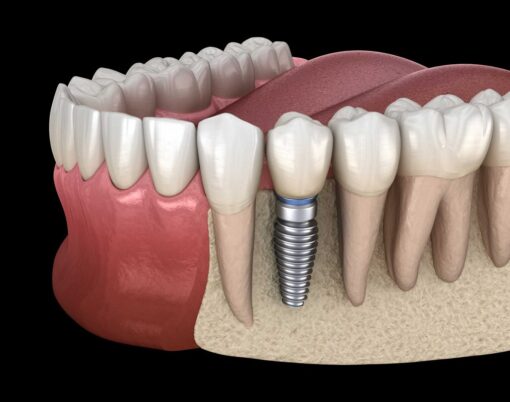
The basis for modern dental implants is a biologic process called osseointegration, in which materials such as titanium or zirconia form an intimate bond to the bone. The implant fixture is first placed so that it is likely to osseointegrate, then a dental prosthetic is added. A variable amount of healing time is required for osseointegration before either the dental prosthetic (a tooth, bridge, or denture) is attached to the implant or an abutment is placed which will hold a dental prosthetic/crown.
Bridges
Bridges are fixed dentures that are attached to natural teeth on either side of the missing tooth or teeth. A crown is affixed to each side of the bridge to replace the natural tooth. The crown is used to secure the bridge in place. A portion of the bridge extends from the crown and replaces the missing tooth. Bridges are more permanent than dentures. They’re less invasive than dental implants and can be used as an alternative to partial dentures.

Bridges come with a few risks and limitations. They can be more challenging to clean and care for due to the attachments to natural teeth. Bridges can also cause the surrounding teeth to change and decay more quickly. There are two bridge types: Traditional bridge: A dental lab creates the bridge. In-house bridge: An orthodontist or dentist creates the bridge by using the existing teeth on either side of the missing tooth.
Dentures
Dentures are removable teeth that are placed on the gums or in the mouth. You can choose between partial or full dentures. Partial dentures are created when all of your teeth are missing on one or both sides of your mouth. Full dentures are used when all of your teeth are missing. Dentures are a temporary fix. They’re not as patient-friendly as dental implants, and they’re not as stable as bridges. Dentures can be uncomfortable and challenging to clean. They can cause oral health issues since the base of the denture is in constant contact with the gums, teeth, and tissues of the mouth.
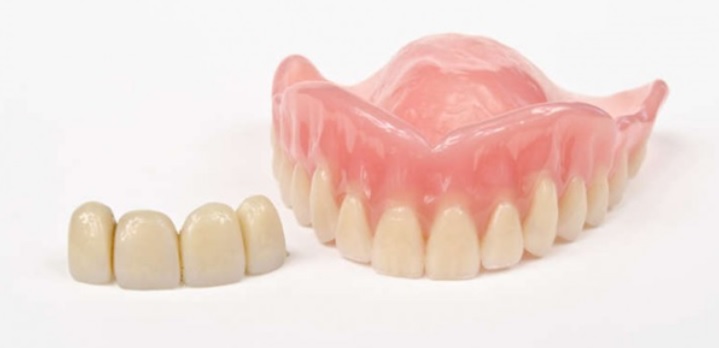
- When a person is missing teeth, he or she may experience a variety of problems. The person may become less confident in their smile and have difficulty speaking and eating certain foods.
- Dentures are appliances that are custom-made to replace a person’s missing teeth and restore the appearance and oral functions that were lost.
- The denture can be either a full denture or a partial denture.
- A full denture is used when all of the person’s teeth are missing and a partial denture is used when only some of the teeth are missing.
Difference between Implants, bridges, and dentures
Dental implants replace missing teeth with artificial roots. They are placed surgically in the upper or lower jawbone and provide a stable anchor for replacement teeth. Bridges are fixed dentures attached to natural teeth on either side of the missing tooth. They provide permanent alternative to partial dentures and can be a better fit for some people than a full denture. Dentures are removable teeth that can be either partial or full.
Like it sounds, a dental bridge spans the missing teeth or tooth gap. It’s attached to both sides, the abutting teeth, and provides a natural-looking and functioning tooth or teeth. Your dentist takes measurements and molds for a custom-made bridge that will look like a set of teeth. Those are permanently attached in your mouth, by securing them on crowns placed over dental implants or natural teeth prepared for the bridge crowns.
Partial dentures are an option when a person still has some teeth in their mouth. They are natural-looking restorations and are temporarily attached to natural teeth in your mouth using a clasp or precision attachment. You remove them when sleeping. Your dentist might recommend crowns on the teeth where the dentures will attach, to make the spot secure.
If your gums and jaw bone are in good condition, your regular or emergency dentist might recommend implants. These implants are covered with a crown. If the gum and jaw bone aren’t healthy enough for implants, a dental bridge is an option, as it doesn’t go into the jaw or gums, but sits on top of it.
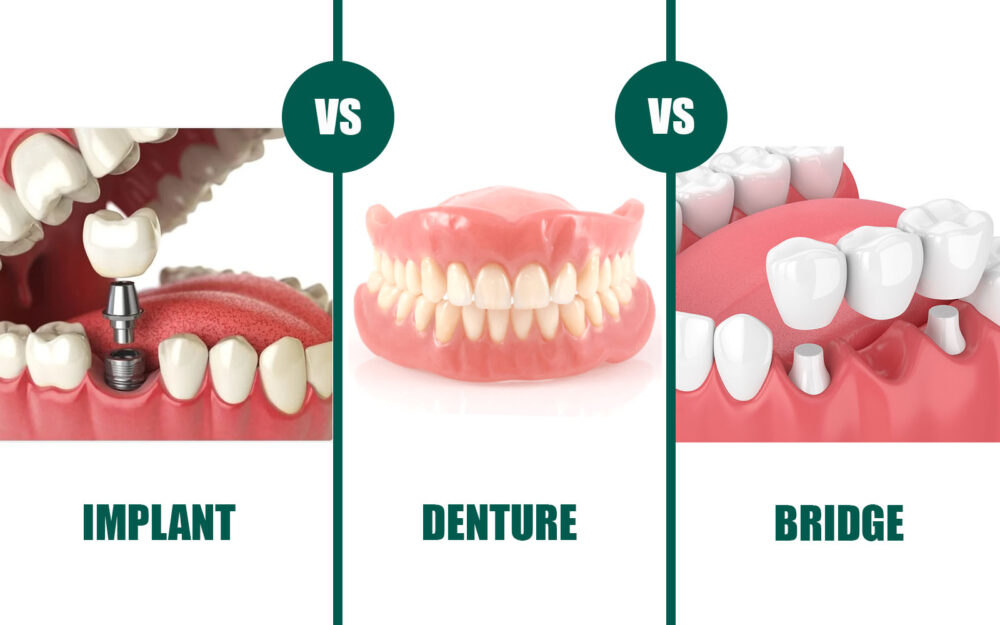
Implant vs. bridge vs. denture: which is best for you?
Deciding between dental implants, bridges, and dentures depends on your oral health conditions, lifestyle, and expectations. Dental implants are a long-term solution for missing teeth. They are more invasive and costly than a bridge but have a lower short-term cost than a full denture. Bridges are a short-term solution for missing teeth. They’re less invasive than dental implants and can be less costly than a full denture.
However, they are more expensive than partial dentures. Dentures are a short-term solution for missing teeth. They are less invasive than dental implants or bridges and less costly than a full denture. However, they are more expensive than partial dentures.
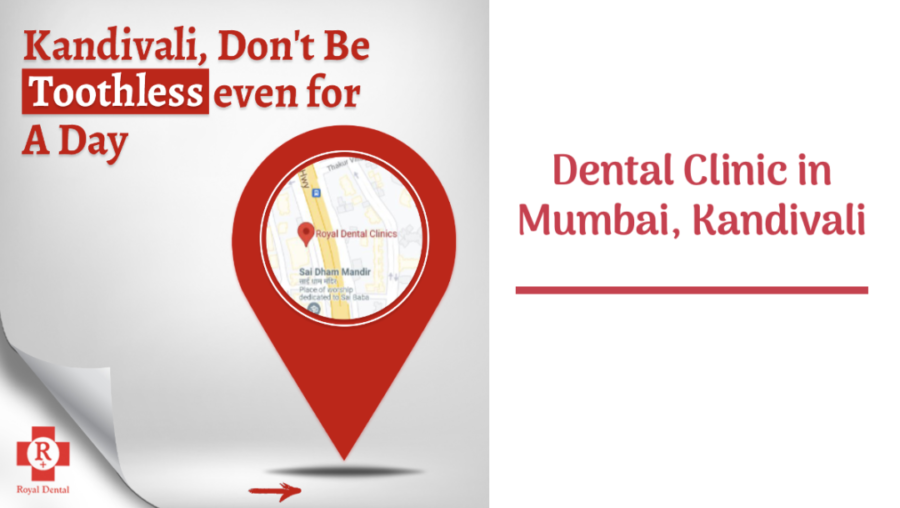
Benefits of dental implants
Strong anchor: Dental implants are strong anchors that can withstand significant force. They’re a great long-term solution for replacing missing teeth.
Durable: Dental implants can last decades with proper care. They don’t have to be removed or replaced due to wear or tear.
Diet options: It allow you to eat a wide variety of foods. They’re suitable for patients with fixed bridgework and partial dentures.
Benefits of bridging
Easy to clean: Since the bridge is a fixed fixture on the teeth, it’s easier to clean than dentures.
Bite strength: The bridge can help improve the bite strength of the surrounding teeth.
Full dental coverage: A bridge provides full coverage for the missing teeth.
Benefits of dentures
Cost-effective: They are the least expensive treatment option.
Quick treatment: Full or partial dentures can be placed quickly.
Food options: Full dentures can be challenging to eat with. Partial dentures are a better option for eating.
Final words
Choosing the best dental treatment for you is a delicate balance between your oral health and lifestyle. If you’ve lost teeth, you have many treatment options to consider. Your dentist or oral health care provider can help you navigate the differences between dental implants, bridges, and dentures to find the right treatment for you.

